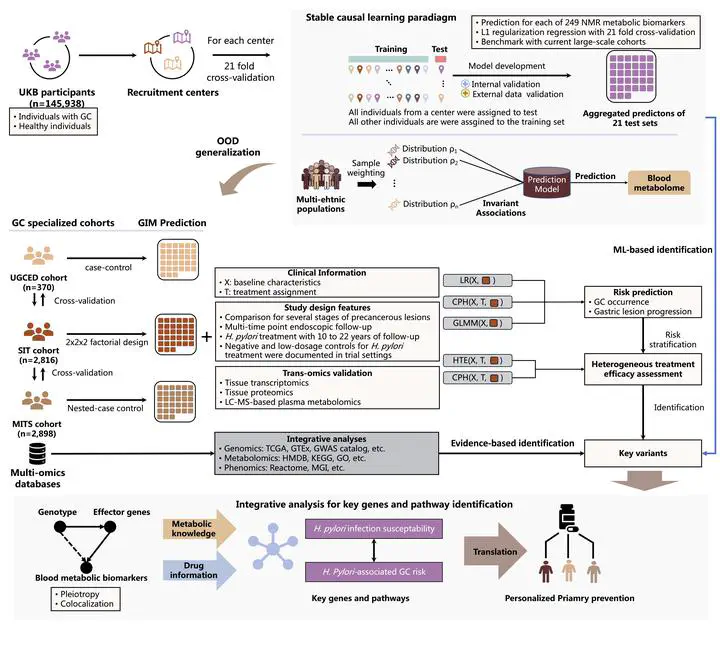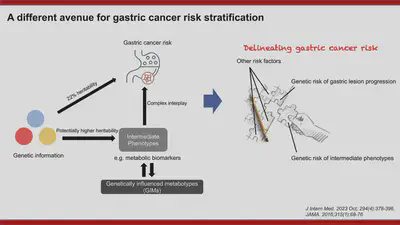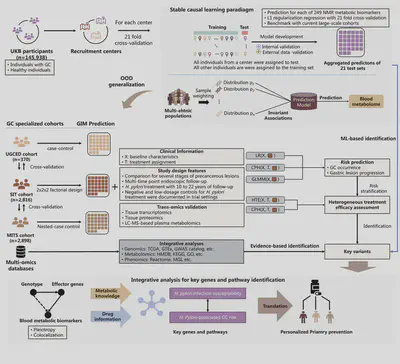Leveraging Multi-Omics Biomedical Data and Machine Learning Techniques for Improving Gastric Cancer Prevention

Introduction

My PhD project focuses on the integration of multi-omics data and machine learning to revolutionize primary prevention of gastric cancer.The project spearheads the fight against gastric cancer by harnessing the power of multi-omics data integration and machine learning techniques. This dual approach not only aims to uncover the intricate biological interactions that predispose individuals to gastric cancer but also to develop robust, generalizable prevention strategies. By combining statistical genetics, epidemiology, biostatistics, metabolomics, and proteomics with causal stable learning, we are setting new standards in precision oncology and primary cancer prevention.
Our work has progressively garnered significant recognition, including the Best Oral Presentation Award at the 2023 AACR-KCA Joint Conference in Precision Oncology. Furthermore, it has been spotlighted at the Sino-German Annual Conference, evidencing its impact and the scientific community’s interest in our innovative methodologies.

For a deeper understanding of our cutting-edge research, explore our recent slides.
The Role of Causal Stable Learning
Causal stable learning is pivotal to our research, enabling us to identify and understand the causal mechanisms underlying gastric carcinogenesis via multi-omics integration. This innovative approach helps ensure that the predictive models we develop are not only accurate but also stable across different populations and settings, a critical aspect when aiming for universal cancer prevention strategies. Through causal inference, we can differentiate between correlation and causation, allowing for the identification of genuine risk factors and intervention targets that hold true across diverse cohorts.
Get Started
- 📚 Dive deeper into our research
- 💡 Learn about the methodologies and technologies behind our findings
- 🌐 Join our research community and contribute to the discussion
- 📢 Keep up with our latest discoveries and achievements
Features
- Innovative Integration of Multi-Omics Data and Causal Learning: A pioneering approach to understanding and preventing gastric cancer.
- Recognition of Research Excellence: Highlighting our project’s impact through awards and international conference presentations.
- Collaboration and Interdisciplinary Research: Fusing advanced omics technologies with causal stable learning to push the boundaries of cancer prevention.
License
Copyright 2023 [Zong-Chao Liu].
This content reflects the findings and contributions of our research team, shared with the goal of advancing gastric cancer prevention and the broader field of precision oncology.